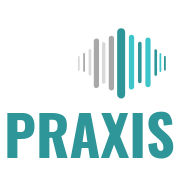PRAXIS
Welcome to PRAXIS: Arts and Humanities for Global Challenges: Championing the distinctive contribution that arts and humanities research can make to tackle urgent global development challenges.
Cultural heritage in the context of disasters and climate change
Transforming Conflict & Displacement
The Impact of COVID-19
Empowering Young People
PRAXIS is focused on Arts and Humanities research across the Global Challenges Research Fund (GCRF) portfolio. Specifically, its aims are to consolidate learning across GCRF projects funded by the Arts and Humanities Research Council (AHRC), to amplify their impact and policy relevance, and to champion the distinctive contribution that Arts and Humanities research can make to tackling urgent development challenges.
PRAXIS encompasses thought and action. The title captures and communicates the distinctive contribution that Arts and Humanities Research can make in engaging critically but also practically with development challenges that are ultimately also global challenges.
PRAXIS is funded by the Arts and Humanities Research Council (AHRC) and is led by Prof Stuart Taberner and Prof Paul Cooke at the University of Leeds. They are joined by Dr. Esther Dusabe-Richards (Research Fellow), Lauren Wray (Project Officer), Dr. Robyn Gill-Leslie (Conflict and Displacement strand), Dr. Francesca Giliberto (Heritage strand), Dr. Luba Pirgova-Morgan (COVID-19 strand), and Dr. Alyson Brody (Youth Engagement strand).
Principal Investigator Stuart Taberner introduces PRAXIS and the project's aims:
A&H for Global Development
The GCRF launched in 2015. It is designed to encourage researchers to address development challenges such as natural disasters, climate change, poverty reduction, global public health, sustainable food production, and clean water, inclusive education, urbanisation, conflict, and forced displacement. Collaboration and partnership with overseas researchers, governments, NGOs and other organisations is key to the success of the GCRF.
The AHRC has taken a lead in fostering innovative research that crosses interdisciplinary boundaries. Indeed, the expertise that Arts and Humanities researchers bring relating to cultural, political, social, historical and linguistic contexts, and to diverse epistemologies, community engagement, and creativity, is essential to addressing the full complexity of development challenges.
Praxis draws together the different strands of learning that AHRC-GCRF projects have produced. Its aim is to identify thematic focal points and to draw out synergies across projects, maximising learning by developing thinking around Arts and Humanities methodologies and themes, and making explicit their contribution and relevance for global challenges. Praxis will collate and publicise impact to influence policy and practice at scale, and make the case for the relevance of Arts and Humanities GCRF research.

